Internetes források szerint tehát:
Volt egyszer Emese, az Árpád-házi uralkodócsalád ősanyja. Nevének jelentése: anyácska. Férje a Magóg király nemzetségéből származó Ögyek (máshol Ügyek vagy Ügek) volt. Történt egyszer, hogy egy turulmadár álmot bocsátott Emesére, melyben méhéből folyó ered, mely idegen földön terebélyesedik ki. Ezt azt jelentette, hogy fiút szül, aki kivezeti népét Levédiából, és dicső királyok őse lesz. Egy másik változat szerint Emesét a turul termékenyítette meg álmában, így a magyarok őse tulajdonképpen a turul. A sztori első blikkre kicsit a Mózes sztori és a Jézus történet keverékének tűnik. Ez a fiú volt mindenesetre Álmos, Árpád fejedelem édes apukája. Álmos előtt volt még valahol Előd is, de azt nem egészen értem, hogy ő hol jön a képbe, mivel elég eltérőek a magyarázatok, ugyanis pár helyen azt írják, hogy Álmos apja volt Előd, de akkor meg mi van Ögyekkel, ugye.
A csodaszarvas után pediglen Hunor és Magor (a hunok, illetve a magyarok őse) futott egy új, ám akkor még meglehetősen mocsaras hazába, nem pedig Góg és Magóg, akik egy másik bibliai történetnek, sőt még az arab mitológiának is vitatott hősei; bár egy helyütt azt írják, hogy Magor azonos Magóggal.
Ők pedig (mármint Hunor és Magor) egy magyarázat szerint Nimród (a Tórában említett mezopotámiai király), egy másik szerint pedig Jáfet (kinek papája nem más vala, mint a bibliai Noé) fiai voltak (bár ez kronológiailag lehetetlen szerintem). Asszem ezt be kéne küldeni a kurucinfónak, hátha ez az infójuk hiányzik. Tán mégsem kéne oly nagyon utálni a zsidókat. Mert bár ha szigorúan vesszük, Noé még nem volt zsidó, de azt erősen kétlem, hogy római katolikus lett volna, és azért ősmagyarnak sem igazán mondanám.

During a festive Sunday lunch spent with a couple of friends, the shameful lack our knowledge of history and Hungarian mythology was revealed, thanks to a bottle of mineral water named Emeshe. By way of excuse we can say that grade school was a very long time ago, and since then we all have other fields of expertise; and besides, there was a drawing of the wonder deer on the bottle.
So according to the sources I found on the internet:
Emeshe was the great mother of all Magyars (Hungarians), the ancestor of many Hungarian kings. Even the original meaning of her name is: little mother. She was married to a man named Ögyek (or Ügyek or Ügek), who was the descendant of King Magog, who is known from the Bible. One day a Turul bird (which is like a giant hawk) made Emeshe fall asleep, and in her dream she saw a river pouring out of her womb, becoming larger and larger as it went further away. This meant that she was going to give birth to a son, who will lead his nation out of Levedia and will later become the forefather of great kings. According to another version the Turul actually made her fertile. At first the story may sound like the mixture of the Moses story and the birth of Jesus. But anyway, the son was born, and he was Almosh (Álmos), who bore Arpad (Árpád), the famous Hungarian king. Before Árpád there was another guy named Előd, but it is not quite clear from the different stories how exactly he came into the picture.
Regarding the wonder deer: it was followed to a new, back then pretty swampy homeland by the brothers Hunor and Magor (the forefathers of the Huns and the Magyars), and not Gog and Magog, who are known not only from the Bible, but even from Arabic mythology; though I found a source that said that Magor and Magog are the same person.
According to one story Hunor and Magor were the sons of Nimrod (king of Mesopotamia, as we learn from the Torah); but others hold that they were the sons of Yafet, who was the son of Noah (though I thing this is chronologically impossible).
So after all it turns out, that Hungarians should not hate Jews so much, because even though Noah might not yet have been Jewish in the sense of the word used today, but I kind of doubt he was Magyar, or Roman Catholic for that matter.




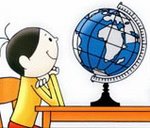
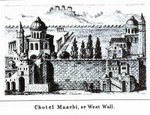
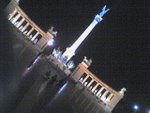

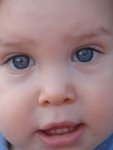



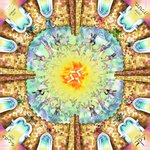




No comments:
Post a Comment